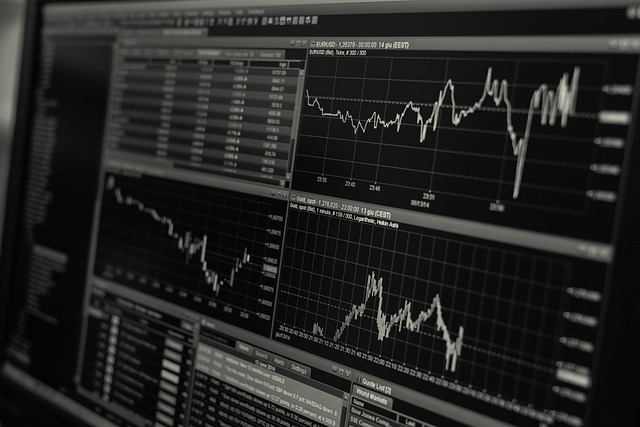
Tracking Development in the SQE
February 28, 2023
Prohibiting Animal Cosmetic Testing: A Positive Worldwide Trend of Cosmetic Markets
March 3, 2023Article by Oscar Luck
What is, and what is the purpose of, an IPO?
An IPO is an initial public offering in which financing is provided to a company in return for equity being given in the company. An IPO is a method of financing that does not result in a debt burden for the company; rather, it just alters the managerial structure. A company can undergo an IPO in any country they wish, no matter the location of origin, with many often deciding to list on the New York stock exchange as it is the largest market. This means the New York stock exchange has the highest volume and liquidity – investors know that they will always be able to exit an investment quickly if needed – and fewer listing requirements compared to other jurisdictions. Note that an IPO does not require a listing, although there will be a simultaneous listing in most cases, especially for larger firms. It is important for companies to have access to equity financing as, in many circumstances, it provides less risk than debt financing.
What occurred before the crackdown?
Before 2021, Chinese stocks often underwent IPOs on the New York Stock exchange using variable interest entities to which the Chinese government previously turned a blind eye. At its peak, Chinese companies gained over $25 billion in a year from financing through listings on the US stock exchange. Around 48% of these companies were in the tech sector and used the financing gained from the listing to develop products and expand their market. The sector’s scale could be seen through the Golden Dragon Index, an index that tracked the performance of China-based stocks on the US stock exchange, reaching a value of $20,000.
The NYSC is not the only such market for Chinese companies to list in, as the HKSE also provided an extremely successful market, much closer related to the Chinese mainland. Chinese firms gained approximately $30 billion of revenue a year through that market. This is because, while the listing requirements are higher, the closer relationship between the Chinese authorities and Hong Kong provided a more reliable investment.
What happened during the crackdown?
However, this came to a halt in 2021, when China had a major crackdown on international listings during a saga relating to DiDi Chuxing, a Chinese ride-sharing platform that was ordered by the Cyberspace Administration of China to stop operating just three days after their $4.4 billion IPO on the NYSE.
The CAC ordered that the DiDi service be postponed to investigate the possibility of protected information falling into the hands of foreign regulators. The decision was made to force companies with over one million users to face security checks and receive official permission before listing on an international exchange.
Chinese billionaire Jack Ma felt the true existence of the crackdown as his proposed $37 billion IPO of Ant Group – a break-off from the infamous Alibaba – was refused on the order of the regulators.
These regulations greatly decreased market confidence in Chinese companies around the world. As a result, financing gained from overseas investment reduced significantly, from $40 million in the Hong Kong and US markets in 2021, to only $5 billion in 2022 – with the US IPO product reducing by 98%. Firms’ stock prices fell, with the Golden Dragon index down 75% from its peak, resting at around $5,000. Any reduction in investment results in a reduction of spending capital and, thus, lower innovation and growth.
These actions reduced both investor and corporate confidence, as all proposed international investments into Chinese firms became postponed until greater clarification and agreement could be reached. This added to the already present risk to investors based on the refusal of Chinese authority to permit companies to release their comprehensive financial statements to investors – a process that is required from all US companies.
What is happening now?
New regulations have now been consolidated by the China Security Regulation Commission, to be enforced from the 31st of March. Some claim these to be a U-turn and a sign that the Chinese government is willing to accept international investment. However, it appears that ‘this is less a U-turn and more a reassertion of state power’, as although such development on policy will give more confidence, the state plays an influential role in the operation of the new policies.
Previously, non-PRCs had no obligation to comply with the CSRC, as only PRCs had to file. However, both non-PRCs and VIEs (variable interest entities) must now list with the CSRC and secure approval before completing an international listing; this will inevitably be a time-consuming and restrictive process resulting in many prohibitions. In addition to securing approval, companies will be required to file reports with the CSRC each year and can potentially be fined up to 10 million yuan if they are found not to comply with their regulations.
Before, VIEs acted as a secure, independent method of gaining financing overseas, bypassing regulation and state control as it involved creating a company – often in the Cayman Islands – and then entering a plethora of contracts to replicate the operation of a shareholding rather than the shares affecting actual ownership of the company. During the crackdown, there were fears that the Chinese authorities would ban such entities in general, resulting in investments becoming worthless. However, this has yet to be fully actualised; rather, the CSRC now directly regulates these entities and controls their functioning.
These regulations do not result in a closed market, although they do little to lift the barricade that formed between the two nations and are far from the previous laissez-faire approach. It is clear that these new regulations will be unable to restore US listings to previous levels, especially considering the high geopolitical tension between the two nations, necessitating high risk for any entity planning to list in the US market. Any such firm may be faced with sanctions from the US side or forced to halt operations by the Chinese authorities. Therefore, it is expected that the most likely impact of the new regulation is a revitalisation of Chinese IPOs on the Hong Kong Stock Exchange instead. But the latter is still not back to previous levels due to the increased onus on the firms to comply with regulatory bodies.
Impact on law firms
IPOs require substantial legal work and, as a result, are a significant source of work for international firms, providing tens of millions a year in fees. US firms may particularly see a slight increase in IPO work if companies are brave enough to take on the risk and complete the backlog of postponed IPOs. Law firms in London could also realise an increase, as although the LSE is of a minimal size compared to the NYSE, it still has hosted a variety of Chinese firms, including five PRCs, in recent years.
Sources
https://www.ft.com/content/cba55a82-1809-4266-af54-9c7d621bd21e
https://www.cnbc.com/2023/02/20/china-formalizes-rules-for-overseas-ipos.html
https://www.ft.com/content/6cbfccb3-4241-4a04-9b04-dd48b4f3662e
https://www.ft.com/content/6cbfccb3-4241-4a04-9b04-dd48b4f3662e
https://www.cnbc.com/2023/02/20/china-formalizes-rules-for-overseas-ipos.html
https://www.ft.com/content/90620c2c-ea07-4425-9a18-f3b4587ed3ad
https://finance.yahoo.com/news/fewer-chinese-companies-ipo-in-the-us-in-2019-115605530.html
https://www.ft.com/content/5b87bbf9-f652-40fc-b06d-8e58693a8c6e
https://www.ft.com/content/0d1d96e7-6b56-4c92-b6f1-b0f93d8b5e72
https://www.ft.com/content/1fe0559f-de6d-490e-b312-abba0181da1f





